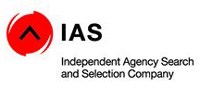Johanna McDowell, MD of IAS says, "The agency believes that the popularity and growth of its Masterclasses reflect the industry's continued and rapid evolution and the need for businesses to keep pace or be left behind. It's all about innovation and the sharing of knowledge that keeps smart business in business."

Senior executives from South Africa's leading communications agencies recently gathered to explore how leaderships styles are defined within their working environment and were surprised to be shown research which shows that adherence to just one particular style compromises efficacy and profitability in the communication agency environment.
The workshop was facilitated by X-ergy consulting, specialists in leadership training, and addressed senior executives from various disciplines including creative, account management and general management.
Of the defined styles of leadership - the Coercive ('Do what I tell you'), the Authoritative ('Come with me'), the Affiliate ('People come first'), the Democratic ('What do you think?'), the Pace-setting ('Do as I do...now') and the Coach ('try this') - it is the Authoritative style that showed up as most popular amongst the attendees of the workshop.
The workshop participants were shown that an international research study, carried out with 3871 executives of Hay Consulting Group, demonstrated that in 87% of cases a business excels when a leader masters the flexibility to switch seamlessly between styles, dictated as necessary by circumstances.
"It is the 'Orchestra Conductor', who produces the best organisational climate and optimises business performance," outlined Lovelle Henderson of X-ergy. She explained how Hays' research study demonstrated that leaders using all six styles exceeded peer performance by 15-20% per annum and those not practicing these leadership skills achieved almost minus 20% lower performance averages.
Participants were shown that the act of defining one leadership style speaks to self-awareness, which leads to self-management, which enhances social awareness and in turn builds social skill; a knock-on effect of vital elements required by leaders within the field of communication.
The group, drawn from IAS agency subscribers, was shown that the nature of a predominantly authoritative leader is to be consultative and inclusive, but ultimately to take responsibility for a decision that affects a Western-style organisation's triple bottom line profitability. "It lets people flourish, so long as it doesn't denigrate into micro-managing a subordinate and a side-lining of their experience," says Henderson.
The affiliate style, on the other hand, is very effective in pitch circumstances where teams need to work well together on extreme deadlines. Meanwhile, the coercive and pace-setting leadership style, which enables a leader to gain very exact and high-energy performance from employees, can stunt employee satisfaction and performance in the long term if used consistently, rather than for special circumstances. "It can result in a lack of creativity and high staff turnover, mainly because resultant achievements are unsustainable," she concludes.
Shepherd Shonhiwa, current CEO and shareholder of Egoli Gas, discussed the ethos and the steps necessary to establish and manage talent pipelines in the communication sector. For senior executives of agency management, he outlined each phase of developing and mentoring the pipeline, which will help agencies to have a well-developed sustainable succession plan.
"Frequently, agencies lose top people to competitors, only to find that there is no back-up plan to replace the key role immediately."
He emphasised how important the implementation of training is for succession planning. Training employees to be potential experts in terms of the agency output will help to minimise anxiety and will help the organisation to continue successfully.
He further advised that training of agency talent should take place throughout the leadership pipeline, from entry roles right through to managerial and executive level - following each individual's progress to the next level. He has been CEO/GM for 14 years operating at the coalface to grow, turn around and stabilise businesses in seven different countries in the SADC region.
According to Johanna McDowell, managing director of the IAS, "It is advisable to have back up leaders for all kinds of situations within an agency, as a means of responding to its demanding nature.
"High quality content is at the core of every IAS Masterclass. We bring in speakers who best promote the messages we know agencies need right now," she concludes.
Other IAS Masterclasses have included 'Government Tenders and Procurement' with David Furlonger and 'New Business is Everyone's Business' with Brenda Ross.
For more info visit www.hbr.org and Social Intelligence and the Biology of Leadership